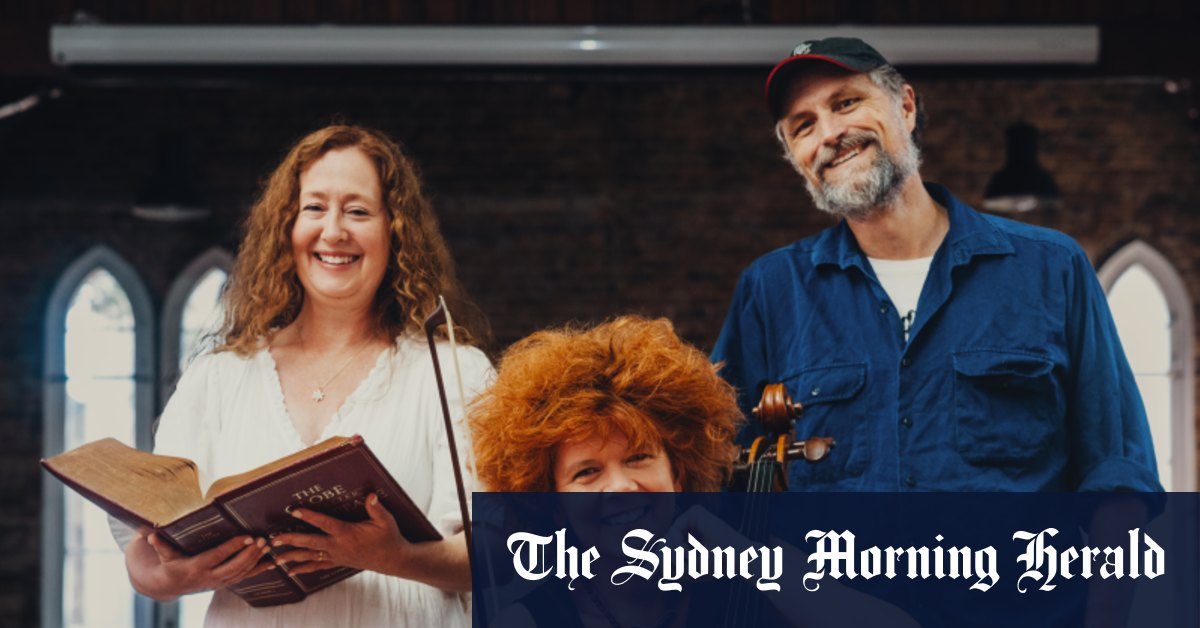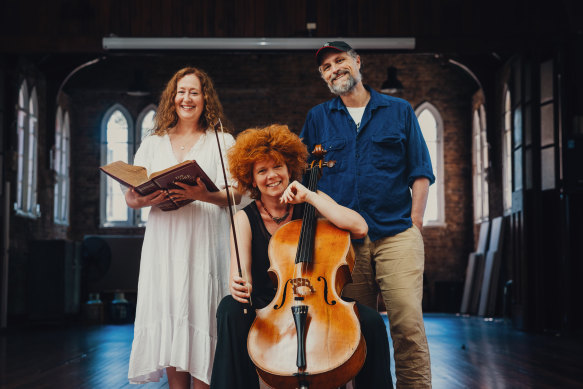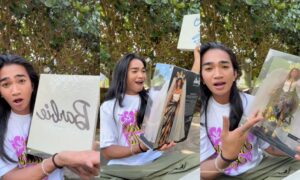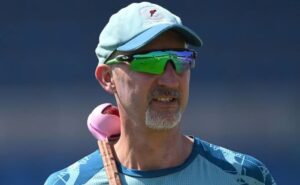
During the COVID lockdowns, when cellist Rachel Scott was allowed only one visitor at a time, she streamed monthly duets she made with other instrumentalists. Looking for a little more variety, she decided to incorporate spoken word and approached actor Damien Ryan, artistic director of Sport for Jove theatre company, to deliver Shakespeare pieces alternating with the sonorous voice of her 1750 cello playing Bach.
“It was this really beautiful marriage of spoken word and me trying to speak as much as I could on the cello,” she says.
The cello’s sound is the closest of any instrument to the human voice, and Scott has always relished working with voices. Post-lockdown, she again worked with Ryan, this time focusing on poems about sleep, after which Ryan suggested a project called Bach and the Bard.

Actor Bernadette Ryan, cellist Rachel Scott and actor Christopher Tomkinson.Credit: Dion Georgopoulos
Scott and harpist (and ABC broadcaster) Genevieve Lang sought to emphasise differences in the repertoire, given there are only two instruments, so they also play works derived from Bach, such as Villa-Lobos’ Aria from Bachianas Brasileiras No. 5, which lends the great composer’s work a Brazilian flavour.
“Rather than sitting down and just having a beautiful meal of one dish,” Scott says, “you get a tasting plate of nine or 10 different things that are quite different but all linked together.”
Between each piece, Ryan and actors, including Bernadette Ryan and Christopher Tomkinson, deliver sonnets and excerpts from plays including Hamlet, Macbeth, Antony and Cleopatra, The Tempest, Twelfth Night and Henry IV.
Loading
Just as musicians often discuss music in terms of voices and phrasing, actors and directors routinely speak of a text as a score. “We often tend to lean into the musicality of Shakespeare,” says Rob Jago, Sport for Jove’s producer and company manager.
“And, of course, Shakespeare used so much music throughout his plays. Often, a song that he included got down to the nuts and bolts of what that play was actually about. So there’s a beautiful mirroring of Bach and Shakespeare as artists, as well.”



